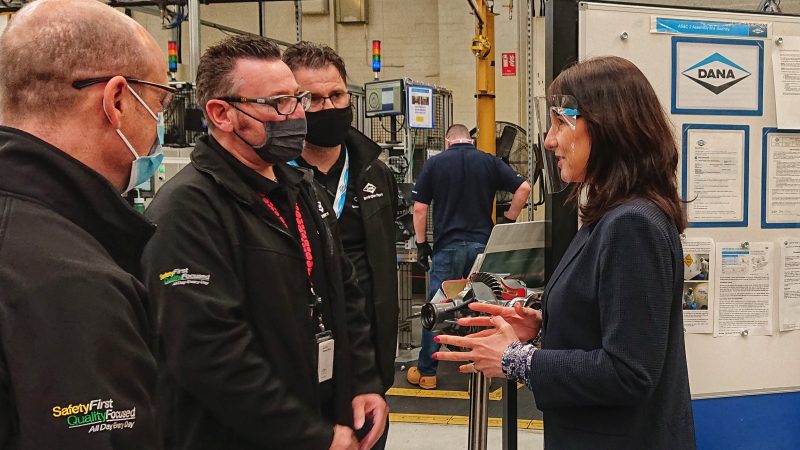
Rachel Reeves has declared that Labour will “make, sell and buy more in Britain” as she unveiled a plan today to raise standards, award more public contracts to British businesses and create “jobs of the future” in the UK.
In her first major intervention as Shadow Chancellor, she said: “As we recover from the pandemic, we have a chance to seize new opportunities and shape a new future for Britain.” The opposition party is proposing:
- “Asking every public body to give more contracts to British firms big and small, using stretching social, environmental and labour clauses in contract design to raise standards and spend and make more in Britain;
- “Passing a law requiring public bodies to report on how much they are buying from British businesses including SMEs;
- “Leading a culture change in government, putting the growth of local industries first, and reviewing the pipeline of all major infrastructure projects to explore how to increase the materials made in Britain, upskill workers to get the jobs of the future;
- “Investing in reshoring jobs in the same way we invest in foreign direct investment, by helping every business considering reshoring access the expertise and support they need; and
- “Working with colleges and universities to make sure we’re honing the skills and apprenticeships for the jobs of the future.”
“Labour will get our economy firing on all cylinders by giving people new skills for the jobs of the future here in the UK, bringing security and resilience back to our economy and public services, and helping our high streets thrive,” Reeves said.
“That starts with our plan to make, sell and buy more in Britain. We want to build on the Britain of today, using what we’ve learned to create a better future. Post-pandemic and post-Brexit, we should be rethinking how we support our businesses, strengthen our supply chains and give people the skills they need to succeed.
“The decade ahead is crucial. From green jobs in manufacturing electric vehicles and offshore wind turbines, to fin tech, digital media and film, we must grow modern industries to build a long-term economy that provides good jobs and is fit for the future.”
Labour has been critical of the government’s approach to public procurement. Lucy Powell accused ministers of “failing to back British steelmaking” earlier this year after UK manufacturers missed out on £25m of funding for projects.
The government has also been criticised over HS2, as only one UK-based firm was shortlisted for the £2.5bn track and tunnel systems contracts, and for its decision to award the post-Brexit passports contract to a Franco-Dutch company.
During the pandemic, the government bought many of the personal protective equipment supplies overseas. A firm from Cheshire, for example, had lined up a deal with local NHS trusts to provide 40,000 reusable gowns but it fell through as the government ordered a shipment from Turkey.
Ministers also faced pressure after it emerged that the government supported the use of a Spanish businessman, paid £21m by a Miami-based company specialising in jewellery, to source supplies of protective equipment from companies in China.
A National Audit Office report last year estimated that between February and July the government spent £12.5bn on PPE, five times as much as it would have cost in normal times, much of which was spent overseas rather than with British suppliers.




More from LabourList
Ashley Dalton resigns as health minister for cancer treatment
Paul Nowak column: ‘Labour must focus on the basics’
‘Labour’s two-child cap victory rings hollow while asylum-seeking children remain in poverty’